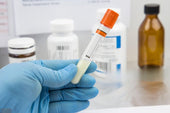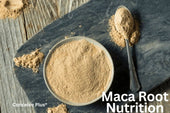Maca and High Blood Pressure: What You Should Know

Maca root, a plant native to the Peruvian Andes, has gained global attention for its potential health benefits, particularly for energy, hormonal balance, and mood enhancement. However, questions about its cardiovascular effects, especially regarding maca and high blood pressure, have also emerged. With millions of people managing hypertension worldwide, understanding how natural supplements like maca affect blood pressure is essential for safe and informed usage.
Maca Root: An Overview of Its Traditional and Modern Uses
Maca, scientifically known as Lepidium meyenii, has been used for centuries by indigenous populations of Peru. Traditionally, it served as a natural remedy to boost stamina, fertility, and overall vitality. Today, maca is available globally in various forms such as powders, capsules, and extracts. It is often used to enhance libido, improve mood, support reproductive health, and balance hormones. As maca supplements grow in popularity, concerns about maca and blood pressure interactions have become more common among health-conscious consumers [1].
If you're curious about when is the best time to take maca root to maximize male fertility, be sure to check out our article 'When Is the Best Time to Take Maca Root: Maximizing Male Fertility' for expert guidance on optimizing your supplement routine.
Nutritional Composition and Potential Health Benefits
Maca is rich in essential nutrients, including fiber, amino acids, vitamins (B1, B2, C), and minerals such as calcium, magnesium, and potassium. These nutrients contribute to overall well-being and may support heart health indirectly. Some users report improved energy levels and reduced stress, which are factors known to positively influence blood pressure. Yet, understanding the direct relationship between maca root blood pressure effects and cardiovascular health is more complex [2].
The Link Between Maca and Blood Pressure
The question at the core of this discussion is: does maca raise blood pressure or lower it? Research on maca and blood pressure is still limited, but preliminary studies show that maca may not significantly raise or lower blood pressure for most people. In some animal studies and small human trials, maca demonstrated neutral or even slightly beneficial effects on blood pressure due to its high potassium content and adaptogenic properties, which may help reduce stress—a common contributor to hypertension.
Still, some users ask, can maca raise blood pressure in specific cases? Factors such as individual sensitivity, dosage, and concurrent health conditions could influence how the body reacts to maca.
Can Maca Raise Blood Pressure or Lower It?
Current evidence suggests that maca does not directly elevate blood pressure in healthy individuals. In fact, the adaptogenic properties of maca may help the body better handle stress, potentially contributing to stabilized blood pressure. That said, does maca lower blood pressure significantly? There is no conclusive scientific data supporting maca as a hypotensive (blood pressure-lowering) agent. Some users with elevated blood pressure report experiencing no changes, while others notice modest improvements when incorporating maca alongside other healthy lifestyle habits.
For those wondering, does maca increase blood pressure or will maca raise blood pressure unexpectedly, it is important to know that no well-controlled studies have confirmed such an effect. However, since maca may act as a stimulant in some people by enhancing energy and alertness, theoretically, it could cause temporary rises in blood pressure for sensitive individuals [3].
What the Science Says About Maca Blood Pressure Effects
Clinical research on maca blood pressure interactions is still in its infancy. A few small studies have evaluated maca’s effect on metabolic and cardiovascular markers, including blood pressure. In a 2015 trial, maca supplementation was associated with slight improvements in blood pressure and mood in postmenopausal women. Other studies highlighted maca's antioxidant and adaptogenic effects, which may indirectly support vascular health.
Despite these promising hints, it's crucial to understand that maca is not classified as an antihypertensive or hypertensive agent. Those looking for clear-cut answers to does maca root lower blood pressure will not find definitive clinical evidence yet, making it advisable to consult a healthcare provider before use, especially if managing hypertension.
Who Should Exercise Caution?
While maca is generally considered safe for most healthy adults, individuals with uncontrolled hypertension, heart conditions, or those taking blood pressure medications should consult a healthcare provider before supplementing. Maca and blood pressure interactions may vary depending on an individual's baseline blood pressure, sensitivity to adaptogens, or coexisting medical conditions. Pregnant or breastfeeding women should also seek professional guidance before including maca in their routine [4].
While research continues to clarify maca's effects on blood pressure, some users are also curious about its potential to enhance libido—if you're interested in whether maca makes you horny and how long it takes to work, check out our article 'Does Maca Make You Horny and How Long Does It Take to Work?
The Bottom Line
In conclusion, the relationship between maca and high blood pressure is still being explored. Current evidence suggests that maca is unlikely to significantly raise or lower blood pressure in most individuals. However, the question does maca root lower blood pressure remains only partially answered due to limited human studies. Maca may offer indirect cardiovascular benefits by reducing stress and supporting general well-being, but it should not replace prescribed treatments for hypertension. If you are considering adding maca to your health regimen, especially if you have preexisting heart or blood pressure conditions, consulting a qualified healthcare professional is the best approach.
References
- Ulloa Del Carpio N, Alvarado-Corella D, Quiñones-Laveriano DM, Araya-Sibaja A, Vega-Baudrit J, Monagas-Juan M, Navarro-Hoyos M, Villar-López M. Exploring the chemical and pharmacological variability of Lepidium meyenii: a comprehensive review of the effects of maca. Front Pharmacol. 2024 Feb 19;15:1360422. doi: 10.3389/fphar.2024.1360422. PMID: 38440178; PMCID: PMC10910417.
- Gonzales GF. Ethnobiology and Ethnopharmacology of Lepidium meyenii (Maca), a Plant from the Peruvian Highlands. Evid Based Complement Alternat Med. 2012;2012:193496. doi: 10.1155/2012/193496. Epub 2011 Oct 2. PMID: 21977053; PMCID: PMC3184420.
- Stojanovska L, Law C, Lai B, Chung T, Nelson K, Day S, Apostolopoulos V, Haines C. Maca reduces blood pressure and depression, in a pilot study in postmenopausal women. Climacteric. 2015 Feb;18(1):69-78. doi: 10.3109/13697137.2014.929649. Epub 2014 Aug 7. PMID: 24931003.
- Beharry S, Heinrich M. Is the hype around the reproductive health claims of maca (Lepidium meyenii Walp.) justified? J Ethnopharmacol. 2018 Jan 30;211:126-170. doi: 10.1016/j.jep.2017.08.003. Epub 2017 Aug 12. PMID: 28811221.































